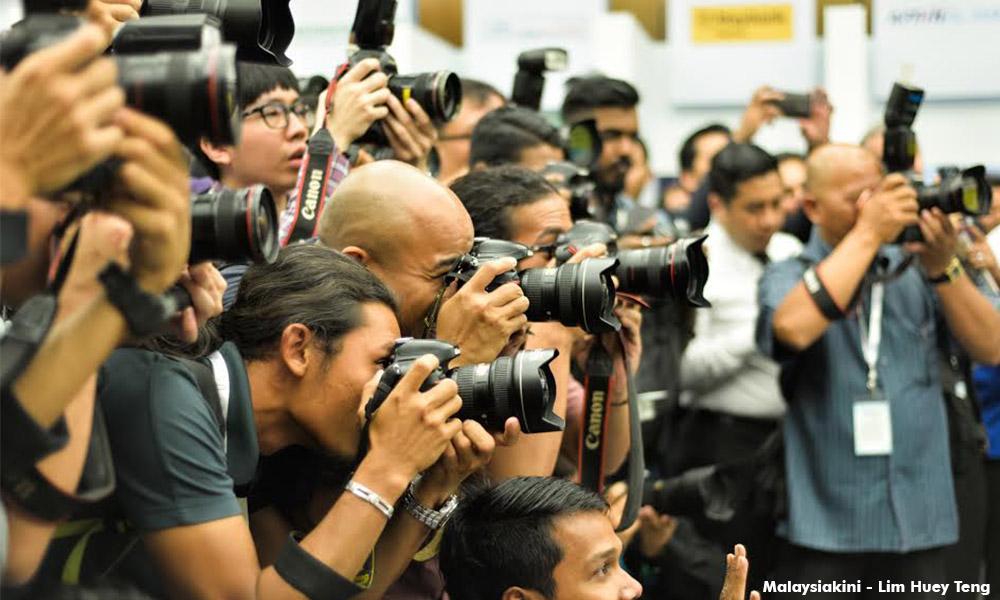
Producers and editors in television stations have to be careful - very careful. If the contents of video clips which they approve for telecast cause annoyance, they will face the full wrath of the law.
News of the prosecution of KiniTV and Malaysiakini editor-in-chief Steven Gan and chief executive officer Premesh Chandran must have sent shivers down the spine of many who occupy the hot seats in the stations.
KiniTV has been charged under Section 233(1)(a) of the Communications and Multimedia Act (CMA) which criminalises the deliberate and improper use of network facilities for communications that are deemed offensive, false or obscene, among others. The offence is punishable with a fine of up to RM50,000, or imprisonment of up to one year, or both.
Gan and Chandran are said to be culpable under Section 244(1) which holds directors and other senior officers of a company liable for offences committed by the company. This offence also carries the same penalty upon conviction.
But as an afterthought, it could be concluded that Malaysian television stations have nothing to fear. They seem to be immune from prosecution despite the fact that their news content and the spin often annoy most right-thinking Malaysians.
From describing politicians, especially from the opposition, as from “senile old man” to “evil forces out to destroy the country”, they have tarred them with a thick brush with total disregard to decorum and respect. They can report and telecast half-truths, hearsay statements and even churn out fodder from the rumour mills. From editing footage to suit their agenda to re-writing history, they have done it all.
However, at the mercy of the laws are news portals and news organisations that have started to use video images to complement their reports. Maintaining an independent stance, they choose to report the news without having an agenda, or taking sides. Their journalists get their news from a slew of sources, including press conferences.
No news organisation can really put a finger on the number of press conferences held every working day. This because not all news organisations are invited and in most cases, government departments and even the private sector, choose to invite only those who they would term as “friendly” parties.
There have been instances when journalists from certain organisations have been prevented from such conferences. Such intrusions and obstacles are contemptible and must be detested.
At such conferences, you’ll find a variety of journalists. Some prefer to hold their tape recorders near the mouths of the subject and some come unprepared, asking mundane questions. But there is a small breed who know the subject well and come prepared to ask all the right questions.
When subjects including VVIPs are put in a spot when asked difficult questions, their faces and body language betray their annoyance, especially so when the cameras are rolling. After the event, their aides would be scurrying around to do damage control.
Microphone taken away
As a journalist, I had several run-ins and face-offs with ministers, government officials, sports aficionados and even public relations consultants who try and stage-manage press conferences.
In one instance, the microphone which I was using to address the then-Sports Minister Azalina Othman was unceremoniously taken away from me for bombarding her with a series of questions for which she could not provide answers.
In the aftermath of the Port Klang Fee Zone scandal, the then-Port Klang Authority chairperson Teh Kim Poh made some spurious claims, much to the annoyance of those present. And he got what he deserved. It can be viewed here.
But fortunately for me, he did not go to the attorney-general like a crybaby complaining that I had made offensive statements. He took it on the chin although his own officers made it worse.
Journalists report events. We are purveyors of news. We ask questions, sometimes difficult and embarrassing. We need the answers to write our stories. Some choose to write commentaries on the news. We take pains to ensure accuracy of facts when we put pen to paper.
The journalist writes for his or her readers or viewers. What he or she writes offers citizens information - good and bad - so that they can be able to make decisions which affect their lives, community, society and government. Nothing more, nothing less.
If transmitting the news electronically or via print truthfully is punishable, the inevitable question to ask ourselves is: Are our leaders being less generous with the truth when they say that Malaysia is a thriving democracy?
If someone says something at a press conference, we have a duty to report it without adding, subtracting, editing or spinning. We are also entitled to make our own assessments if questions go unanswered.
If someone has a counter view or if some party is aggrieved to what has been published, he or she has the right of reply and if not satisfied, has civil remedies. Punishing journalists and editors for reporting what is said by a third party, is shooting the messenger. And remaining silent and refusing to initiate action against those who uttered the alleged offending words could only totally be described as out of order.
Finally, let it be said that there are many masquerading as journalists. It must be admitted that there are black sheep in the fraternity who have sold, and continue to sell, their souls for a song. Go after them by all means but leave us alone - those who practise their craft without fear or favour.
R NADESWARAN is an award winning veteran journalist who writes on bread and butter issues with one agenda - a better quality of life for all Malaysians irrespective of colour, creed or religion. He can be reached at: citizen.nades22@gmail.com.- Mkini



No comments:
Post a Comment
Note: Only a member of this blog may post a comment.